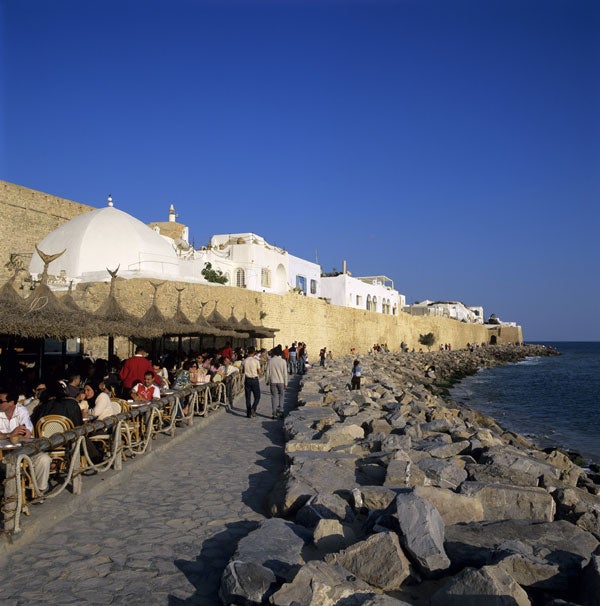Simon Calder: As airlines hedge their bets, the passenger pays
The man who pays his way

Your support helps us to tell the story
From reproductive rights to climate change to Big Tech, The Independent is on the ground when the story is developing. Whether it's investigating the financials of Elon Musk's pro-Trump PAC or producing our latest documentary, 'The A Word', which shines a light on the American women fighting for reproductive rights, we know how important it is to parse out the facts from the messaging.
At such a critical moment in US history, we need reporters on the ground. Your donation allows us to keep sending journalists to speak to both sides of the story.
The Independent is trusted by Americans across the entire political spectrum. And unlike many other quality news outlets, we choose not to lock Americans out of our reporting and analysis with paywalls. We believe quality journalism should be available to everyone, paid for by those who can afford it.
Your support makes all the difference.Pity the poor tour operator in an unstable world. To provide us with the travel experiences we crave, they must cope with all manner of uncertainty, from snow to striking Spanish air-traffic controllers.
This week, both of Britain's giant holiday companies added a fuel supplement to holiday prices. Anyone buying a trip involving a flight on the in-house airlines of Thomson and Thomas Cook must now pay a surcharge.
On Thomas Cook, for example, the minimum levy is £15 per person for a short-haul flight to Spain or Portugal, rising to £40 for long-haul trips to the Caribbean and Florida. A family of four heading for the beaches, cultural riches and warm welcomes of Egypt or Tunisia will pay an extra £100.
At least they'll be in a good location to complain, because it is the political turmoil in North Africa that has helped cause a spike in the price of aviation fuel – up "more than 40 per cent in the last year", according to Thomas Cook. The company explains to customers that "all these costs are beyond our control", and that "the fuel levy is an unavoidable result of the rising price of oil". Both these statements, I contend, are tosh.
The fuel levy is, in fact, entirely avoidable. It is easy for any big tour operator to control its airline costs. They know, to within a few percentage points, how much Jet-A fuel their aircraft will use this summer. They are free to "hedge" – ie lock into – a specific price for that aviation fuel, and the dollars to pay for it. ppp Why, you may wonder, have the firms not taken out such an insurance policy to eliminate instability on global oil and currency markets? The answer: they have. Thomson's surcharges correlate, says the company, with its hedging positions – they start low (a fiver for short-haul flights) until next winter, when fuel levies rise to Thomas Cook levels.
Meanwhile Thomas Cook's parent company, which includes interests in Germany, France, Benelux, Scandinavia and Canada, has hedges in place "for fuel out to April 2012". Last month, the Thomas Cook Group as a whole bragged that it is five-sixths hedged (try saying those last three words after a poolside cocktail or two) for the summer.
How does Messrs Cook justify its price hikes? "The supplement covers the increase in price for unhedged fuel," says a spokeswoman. Consider a typical three-hour flight from Gatwick to Monastir in Tunisia. Passengers will pay an extra £12.50 each way.
If one-sixth of the fuel were unhedged, in line with Thomas Cook Group policy, that makes the total fuel bill per passenger a staggering £375 return. Those Airbuses must be thirsty. Yet the company is selling a week's five-star, half-board package holiday in Tunisia, departing Gatwick on 16 March for £148 – including the fuel levy (the trip is based at the Ibero Saphir Palace at Hammamet: book at thomascook.com if you're tempted. I was).
Thomas Cook says the tongue-twisting five-sixths hedging "isn't correct" for the company's UK operations. So what's the real figure? "We can't confirm the correct percentage to you."
Egypt's builders take it easy beside the Red Sea
Those tricky North African issues have also hit Thomson, Europe's biggest holiday company.
The firm said its Sharm El Sheikh Sensatori resort (formerly the Coral Sea Imperial) would open on Thursday. But "recent civil unrest" has caused a nine-week delay in opening. The upheavals clearly disrupted life in Egypt for a couple of weeks – but enough to cause a 66-day postponement?
Yes, says Thomson: "Unscheduled industrial action" has forced it to cancel all holidays at the resort until mid-May. The firm blames "a delay in finishing materials arriving from Cairo, as well as a reduced number of staff working on the project over the past couple of weeks". Industrial relations in Egypt must resemble 1970s Britain.
The refurbishment of the Old Cataract Hotel, a Sofitel property on the east bank of the Nile in Aswan, is running about year behind schedule. Only a cynic would speculate that Thomson has run into the same kind of difficulties in Sharm, but is seeking to lay the blame elsewhere.
Join our commenting forum
Join thought-provoking conversations, follow other Independent readers and see their replies
Comments